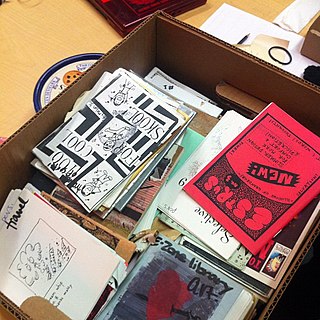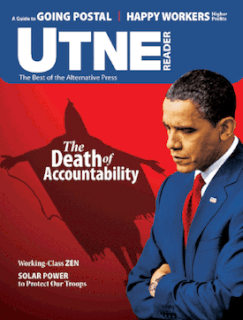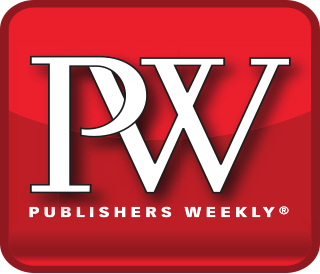Related Research Articles
A fanzine is a non-professional and non-official publication produced by enthusiasts of a particular cultural phenomenon for the pleasure of others who share their interest. The term was coined in an October 1940 science fiction fanzine by Russ Chauvenet and first popularized within science fiction fandom, and from there it was adopted by other communities.

A zine is a small-circulation self-published work of original or appropriated texts and images, usually reproduced via a copy machine. Zines are the product of either a single person or of a very small group, and are popularly photocopied into physical prints for circulation. A fanzine is a non-professional and non-official publication produced by enthusiasts of a particular cultural phenomenon for the pleasure of others who share their interest. The term was coined in an October 1940 science fiction fanzine by Russ Chauvenet and popularized within science fiction fandom, entering the Oxford English Dictionary in 1949.

Factsheet Five was a periodical mostly consisting of short reviews of privately produced printed matter along with contact details of the editors and publishers.

Publishing is the activity of making information, literature, music, software and other content available to the public for sale or for free. Traditionally, the term refers to the distribution of printed works, such as books, newspapers, and magazines. With the advent of digital information systems, the scope has expanded to include electronic publishing such as ebooks, academic journals, micropublishing, websites, blogs, video game publishing, and the like.

New Musical Express (NME) is a British music journalism website and former magazine that has been published since 1952. It was the first British paper to include a singles chart, in the edition of 14 November 1952. In the 1970s, it became the best-selling British music newspaper. From 1972 to 1976, it was particularly associated with gonzo journalism then became closely associated with punk rock through the writings of Julie Burchill, Paul Morley, and Tony Parsons. It started as a music newspaper, and gradually moved toward a magazine format during the 1980s and 1990s, changing from newsprint in 1998.
Alternative comics cover a range of American comics that have appeared since the 1980s, following the underground comix movement of the late 1960s and early 1970s. Alternative comics present an alternative to mainstream superhero comics which in the past have dominated the American comic book industry. Alternative comic books span a wide range of genres, artistic styles, and subjects.
A minicomic is a creator-published comic book, often photocopied and stapled or with a handmade binding. In the United Kingdom and Europe the term small press comic is equivalent with minicomic, reserved for those publications measuring A6 or less.

HK Magazine was a free English-language alternative weekly published by HK Magazine Media Group in Hong Kong. Launched in 1991, it offered coverage of local affairs, social issues as well as entertainment listings. The 1000th issue was published in 2013, the same year that it was sold to the South China Morning Post (SCMP) group. The magazine printed its final issue on 7 October 2016. This was the third SCMP subsidiary to close since the takeover of the newspaper by the Alibaba Group.

Spin is an American music magazine founded in 1985 by publisher Bob Guccione, Jr. The magazine stopped running in print in 2012 and currently runs as a webzine, owned by NEXT Management.

Utne Reader is a digital digest that collects and reprints articles on politics, culture, and the environment, generally from alternative media sources including journals, newsletters, weeklies, zines, music, and DVDs.
The Underground Literary Alliance is a Philadelphia-based and internationally membered group of writers, zinesters and DIY writers. They seek to expose what they see as the corruption and insularity in the American book-publishing establishment while providing alternative avenues for writers who don't easily fit into mainstream institutions and agendas.

Crash was a magazine dedicated to the ZX Spectrum home computer, primarily focused on games. It was published from 1984 to 1991 by Newsfield Publications Ltd until their liquidation, and then until 1992 by Europress.

Publishers Weekly (PW) is an American weekly trade news magazine targeted at publishers, librarians, booksellers, and literary agents. Published continuously since 1872, it has carried the tagline, "The International News Magazine of Book Publishing and Bookselling". With 51 issues a year, the emphasis today is on book reviews.
The News & Review is a group of free alternative weekly newspapers published by Chico Community Publishing, Inc. of Chico, California. The company publishes the Chico News & Review in Chico, California, the Sacramento News & Review in Sacramento, California, and the Reno News & Review in Reno, Nevada.
British small press comics, once known as stripzines, are comic books self-published by amateur cartoonists and comic book creators, usually in short print runs, in the UK. They're comparable to similar movements internationally, such as American minicomics and Japanese doujinshi. A "small press comic" is essentially a zine composed predominantly of comic strips. The term emerged in the early 1980s to distinguish them from zines about comics. Notable artists who have had their start in British small press comics include Eddie Campbell, Paul Grist, Rian Hughes, Jamie Hewlett, Alan Martin, Philip Bond and Andi Watson.
Microcosm Publishing is an independent publisher and distributor based in Portland, Oregon. Microcosm describes itself as having "a reputation for teaching self-empowerment, showing hidden histories, and fostering creativity through challenging conventional publishing wisdom, influencing other publishers large and small with books and bookettes about DIY skills, food, zines, and art."

Venus Zine was a quarterly internationally circulated magazine covering women in music, film, art, entertainment, literature, fashion, indie culture and DIY culture. It was published from 1995 through 2010.

Razorcake is a 501(c)(3) non-profit organization that publishes the Razorcake fanzine, a DIY punk rock fanzine published bi-monthly out of Los Angeles, California. It was co-founded by Todd Taylor and Sean Carswell in 2001.
Self-publishing is the publication of media by its author without the involvement of an established publisher. The term usually refers to written media, such as books and magazines, either as an ebook or as a physical copy using POD technology. It may also apply to albums, pamphlets, brochures, video content, and zines.

The Comic Reader (TCR) was a comics news-fanzine published from 1961 to 1984. Debuting in the pre-direct market era, TCR was the first regularly published comics industry news fanzine, and was able to secure many contacts from within the ranks of the larger publishers. As TCR increased in popularity and influence, it was able to attract professional artist to illustrate the covers. TCR also proved to be a launching pad for aspiring comic book creators, many of whom published work in the fanzine as amateurs. Contributors from the world of fandom included founding editor Jerry Bails, key editor Paul Levitz, Paul Kupperberg, Tony Isabella, Byron Preiss, Neal Pozner, Don Rosa, Carl Gafford, and Doug Hazlewood.
References
- ↑ "Zine world: a reader's guide to the underground press". National Library of Australia. Retrieved 26 July 2020.
- ↑ "Zine World: A Reader's Guide to the Underground Press". ZineWiki. Retrieved 6 March 2016.
- ↑ "The End of Zine World". We Make Zines. 8 January 2013. Retrieved 6 March 2016.